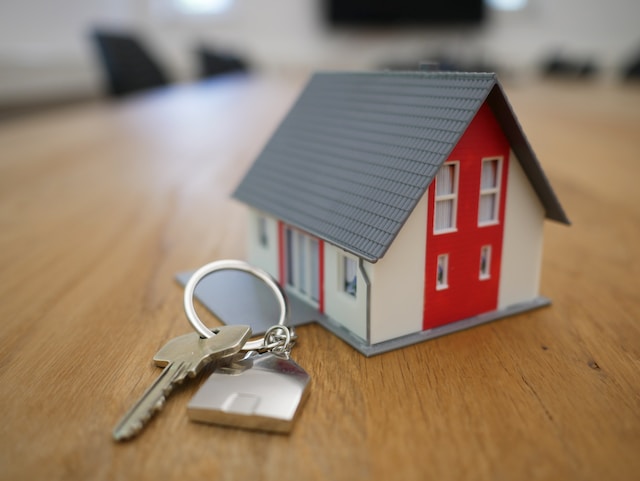Near the end of 2021, my interest in lifestyle design and personal finance was at an all-time high, and I decided I wanted to invest in a rental house. I ended up buying and renting my first investment property in 2022, and in this article, I will discuss why I decided to pursue it. In the follow-up article, I will discuss the ups and downs of the experience of buying and renting it.

My Dad has owned a few rental properties since before I was born, and while I do remember some annoyances growing up, with calls from tenants and ongoing projects, I knew his investments had done well for our family overall.
However, I wasn’t sold on the idea. I was under the impression that investing in real estate usually didn’t outperform the stock market (using low cost index funds), other than in extreme situations, such as someone having the money to buy houses during the 2008/2009 market crash.
I then learned that one of my coworkers had owned a rental for a year or two, and he showed me some resources to learn more. I started listening to the BiggerPockets podcast and read a few books (my favorites were Landlording on Autopilot by Mike Butler and The Book on Rental Property Investing by Brandon Turner). As I learned more about the potential benefits, real estate investing was looking more and more appealing.
I’ve moved to a few different cities in the past, and would have liked to rent a home in every one, but found the options were few and far between, so I figured giving this experiment a try would be a positive, with hopefully a financial upside.
Now I will go over some of those possible positives I found appealing.
Four Ways to Earn

Owning real estate can make money in four different ways:
- Cash flow
- Principal pay down
- Appreciation
- Tax advantages
Cash flow is what most people think of when considering earnings from a rental property. It’s the money left over from the rent after you pay the mortgage, taxes and insurance, as well as after you set aside money for vacancies, repairs, and big maintenance expenses.
Principal pay down is the money made as a mortgage gets reduced month after month as the loan is amortized. When you buy real estate with a loan, this is called using “leverage”. Although you don’t see this money in your bank account, the decreasing mortgage balance is a very real form of profit.
Appreciation is what occurs when the house you own increases in value. There are two primary forms of appreciation: market appreciation, and forced appreciation. Forced appreciation is strategically upgrading the house to increase its value. This is how house flippers make their money. I am only interested in long-term investing, so I will talk more about market appreciation, though forced appreciation can have its place in a long-term strategy as well.
Market appreciation is just a result of home prices increasing in general. Although we’ve seen a huge home price increase over the last few years, and this varies wildly by area, on average, appreciation only keeps pace with inflation. When I learned this, I fell into the common trap of thinking that appreciation should then be ignored.
Leverage, however, significantly changes the equation when it comes to appreciation. If you put 20% down on a $200,000 house, you pay $40,000 for it. If that house then appreciates 3% in one year (from $200,000 to $206,000), that $6,000 difference is yours to keep. So rather than a 3% return, you effectively get a $6,000 / $40,000 = 15% return. The downside is that leverage cuts both ways, and reductions in home value also hit with multiplied force. We’ll discuss this potential downside a bit more in the section below on risks.
Tax Advantages are the final way you make money from real estate investing. There are several things to consider when discussing these tax implications, but I am no expert, so I will only mention the most obvious one: depreciation.
Depreciation significantly reduces the taxes you need to pay for the first 27.5 years you own a rental house. It assumes the house is losing value at a certain rate, and allows you to deduct that much from your taxes. Now this isn’t free profit, because when you someday sell your rental house, it will (hopefully) sell for more than you paid for it, demonstrating that this depreciation didn’t actually occur. So then these “deferred” taxes are taken out of your profit from the sell.
These deferred taxes are a big deal beacuse you can invest that money in the meantime, and 27.5 years is a lot of time for those investments to compound. Additionally, there are strategies such as a “1031 exchange” that can allow you to defer these taxes even further than 27.5 years.
Those are the four ways you make money from real estate, and they often do combine to outperform the stock market significantly. I’ll discuss a couple of more pros to real estate investing as well.
Other Advantages
Inflation is a benefit for leveraged real estate investing, believe it or not. As inflation occurs, rents increase, but your mortgage payment stays the same. Property taxes and insurance will increase, as well as the cost of other expenses, but the mortgage itself is guaranteed by the bank for its life (of hopefully 30 years). Even if we go back to the previous decade where inflation was usually about 2%, over the course of 10 years, rental property profit greatly increased from inflation.
Control is another upside of investing in real estate directly. A lot of people feel helpless when their 401k balances get slashed in a downturn. There’s nothing you can do to affect the performance of most publicly traded stocks. Real estate however, is something you can see, smell, and touch, and it’s something you can control. You can set rent prices, decide what to renovate and when, how to advertise for rent, and who to put in the property (complying with fair housing laws). Of course you can’t control the housing market, but you can decide how you respond to it. It can be nice to have your investing destiny in your own hands.
Diversification is a nice pro as well. A decent low cost index fund is well diversified within the asset class of stocks (also called equities), and that’s probably good enough. However, I really like the idea of owning a different asset class entirely.
Less liquidity is also something I would consider an advantage of real estate. Everyone seems to claim that liquidity is a huge pro for an investment, while at the same time saying you should invest for multiple decades. We all know of people who have panicked and sold stocks during a downturn, only to lose out on the gains of a rebound. In real estate, I think it’s a good thing that it takes a lot more time and effort to sell your assets. You can still sell at the wrong time of course, but it’s less easy or likely than with stocks.
The Risks of Owning Real Estate

Now let’s talk about the risks and downsides of owning real estate and how I hope to mitigate them.
Location might be the risk with the biggest potential downside. If you buy in an area of temporary industry where everyone later moves away, or if the neighborhood declines, then you can be left with a property where there’s no demand. I’m investing in the suburbs outside of Cincinnati, and I can’t imagine the area outside such a well-established city plummeting, so I’m hoping this is not a significant concern for me.
Non-paying or destructive renters are also a scary possibility, but I think this risk can usually be mitigated by sticking to strict criteria and screening procedures. But a small risk is still not zero. I haven’t had to deal with this situation myself, but the advice I see repeated over and over is to stick strictly to the lease and move ahead with necessary legal proceedings immediately. This wouldn’t be fun for either party involved, but dragging out the timeline any longer than necessary makes things harder on everyone.
Leverage risk mostly occurs in a market downturn, and comes in the form of not being able to meet your loan payment requirements. We have a decent amount of control over this risk, including selection of loan type, a cash-flow cushion, cash reserves, and a conservative LTV.
There are many different types of loans, and all are NOT created equal. I think the best type of loan for buying your first several residential investment properties is a 30 year fixed-rate mortgage from a bank. I was comfortable using this type of debt, but would not have wanted to use others. Short term loans can be called suddenly, ARMs can increase your payment in market crunches, and commercial loans have balloon payment deadlines, but 30 year fixed loans will always stay the same.
In general, the goal in a downturn is to never have to sell the property, and a decent cash-flow cushion helps this immensely, as you can always lower rents and get someone in the property when times are bad. In this way we can think of cash flow as defense, as well as a form of profit. My thinking here is never buy a property with negative cash flow, even if you think the appreciation opportunity is irresistible.
Large cash reserves are also critical to weathering downturns. The rule of thumb I’m using is to have a bank account for each property, with the maximum of either: 6 months of mortgage payments (including taxes and insurance), or the cost of a new roof and furnace. I would probably relax this number somewhat if I had more properties.
Lastly, I think it’s a good idea to maintain an average loan to value (LTV) of something like 50%-70%. This means that no more than 50%-70% of the total value of all your properties is leveraged with a loan. This helps insure that if you DO need to sell in a downturn, you can probably pay off your loans with the selling proceeds.
I think that it’s fine to go above this number on your first property or two, especially if you make enough money in your job to help cover the payment in the case of a vacancy. After all, house-hacking with an FHA loan only requires 3.5% down and is probably the best way to get started in real estate (this means buying a 2-4 unit home, living in one unit, and renting out the others). If you want to learn more about this, I highly recommend the book Set For Life by Scott Trench.
These considerations made me comfortable with buying my first rental using a mortgage.
Wasted effort is the final risk I want to discuss. It’s entirely possible that everything will be harder and more expensive than you expect (spoiler, this will come up in the follow-up article). It’s possible that you don’t outperform the easier option of index funds. For this risk, I only know to get in slowly, take it one property at a time, and accept that you might waste some time, effort, and money. Most everyone says that the first property always has setbacks, and you can expect things to improve with each one.
Conclusion
Those are most of points I considered when deciding I wanted to buy my first rental property. Time will tell how it goes. In the follow-up article, I’ll talk about the good and the bad of the process of finding, buying, fixing up, and renting out my first investment property.